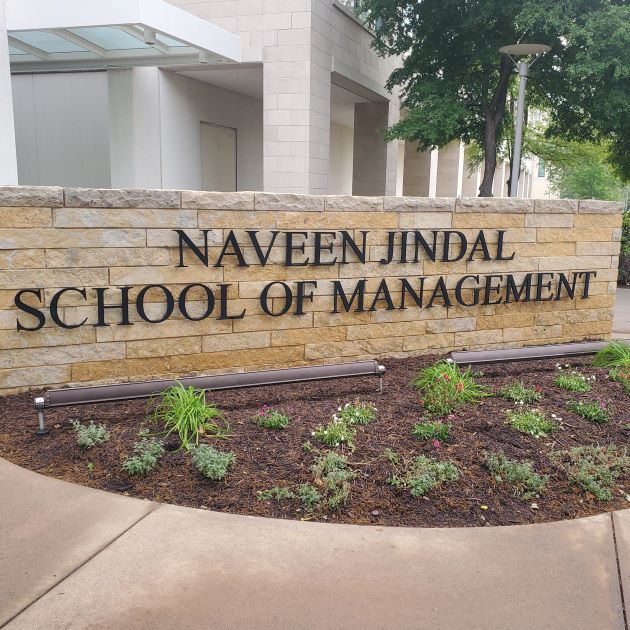Innovation and disruptive change might not be the first concepts that come to mind with project management, but they should be, said speakers at a recent conference at The University of Texas at Dallas.
The 12th Annual UT Dallas Project Management Symposium drew more than 425 project management professionals, executives, faculty, staff, and students to the Naveen Jindal School of Management and the Davidson-Gundy Alumni Center on May 17 and 18.
Opening speaker James W. Keyes, chairman of Wild Oats Marketing LLC, offered a fundamental truth about any transformation. “Change is really the hardest thing in the world for people to accept,” he said.
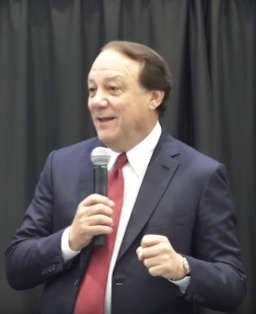
Keyes discussed his time as chairman and CEO of 7-Eleven and Blockbuster. “[Whether] you’re leading a corporation or… a team of five, you’ve got to understand that it’s almost an inertia,” he said. “When you’re trying to move forward, I don’t know of any project that isn’t trying to create change.”
An opening interview with Robert S. Kaplan, president and CEO of the Federal Reserve Bank of Dallas, kept up the momentum on the second day of activities. John Barden, assistant dean of Executive Education at the Jindal School, questioned Kaplan, with a focus on “Economic Conditions and Key Challenges Facing the U.S. Economy.”
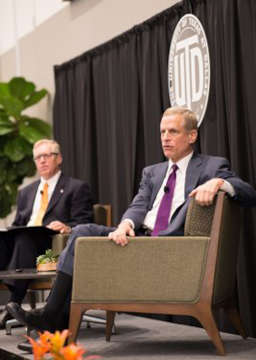
When asked what advice he would give business leaders, Kaplan suggested that they think much more broadly, beyond just maximizing quarterly and annual profits.
“Schools are deteriorating, wealth inequality is rising, we’ve got a bunch of at-risk people in this state and country…” Kaplan said. “What are you doing about it?”
In all, the two-day symposium featured four keynote presentations, 28 breakout sessions grouped in six subject areas and three interactive sessions, including a board game. The Naveen Jindal School of Management Executive Education Graduate Degree Program in Project Management, the Dallas chapter of the Project Management Institute and PM World Journal sponsored the event. Project management professionals who attended were eligible to earn 13 professional development units.
Discussions ranged from innovative project management concepts and techniques to managing successful blockchain projects. Participants even got a taste of Agile, a framework used in the software development industry that allows for nimble, incremental updates of projects with continuous improvement along the way. The project management industry has historically used a more traditional linear approach to projects called the waterfall model.
To close the first day, a trio of UT Dallas community members gave audience members a primer on the fast pace of progress in a connected, rapidly changing, global economy. Chris Bhatti, MA’06, assistant dean of development and alumni relations at the Erik Jonsson School of Engineering and Computer Science; Bryan Chambers, director of Blackstone LaunchPad; and Angela Chen, MBA’13, director of international investor relations at the Chalak Mitra Group of Companies; offered their insights on “Leveraging Innovation and Entrepreneurship Across Academic and Programmatic Environments to Foster Cross-Border Communications.”
The advice Robert Kaplan offered project management professionals the next morning was threefold: understand what distinctive value you add, pick your top three priorities and work on those 70 percent of the time, and think about where your organization is out of alignment.
“The most important thing a leader can do is be open to learning,” he said.
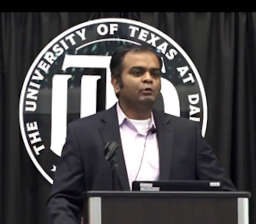
Jayadev Gopinath, general manager, Advanced Tech, Platforms, Innovation, Data & Analytics at Toyota Motor North America, followed Kaplan with his presentation about “Driving Innovation in the Digital Economy.”
Gopinath explained what companies need to build a “data-analytics ecosystem” that allows them to become a data-driven company.
“From data, you want to drive insights,” he said. “From insights you want to drive action. From action, you want to measure results.”
The most challenging part of the process, he said, is for a company to take action from those insights because it requires a culture change.
The symposium concluded with an interactive session in which attendees played Scrum! The Board Game.
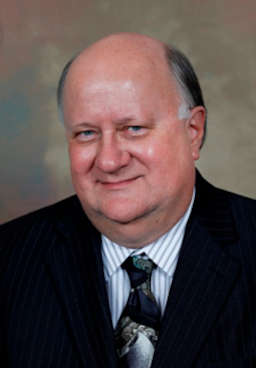
Dr. James Szot, director of JSOM’s Project Management program, opened the symposium by informing the audience that Jim Joiner, founding director of the Project Management Graduate Degree Program and emcee for the first 11 symposia, had retired to Central Texas to be near his grandchildren and other family.
“The program Joiner started 22 years ago has stood the test of time and remains strong,” Szot said. “This year’s symposium may have been the best yet.”





